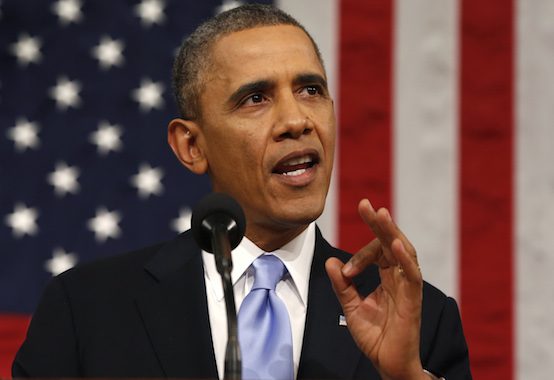Work and Life Under Obamacare

“A society rooted in responsibility must first promote the value of work, not welfare,” said the president in his sixth State of the Union address.
The speaker wasn’t Ronald Reagan or Richard Nixon. It certainly wasn’t George W. Bush. Barack Obama has only just delivered his fifth State of the Union.
Those words valuing work over welfare were uttered by Bill Clinton, the Democratic president who pledged to end welfare as we know it—and, with just a bit of prodding from a Republican Congress, substantially delivered.
“We can be proud that after decades of finger-pointing and failure, together we ended the old welfare system,” Clinton continued. “And we’re now replacing welfare checks with paychecks.”
The finger-pointing, if not yet the failure, has returned. The latest example is the fallout from the Congressional Budget Office analysis that suggests Obamacare will reduce full-time employment by some two million workers.
Many Republicans believe that Obamacare’s taxes and regulations will eliminate jobs directly (the delay of the employer mandate past the 2014 elections suggests at least somebody in the White House’s political orbit isn’t confident they’re wrong). But that’s not what the CBO is saying here. This specific projection refers to employees who will either reduce their work hours or drop out of the labor force entirely due to the health care law’s subsidies and phase-outs.
Some Republicans responded by conflating this impact on the labor force with the law’s other potential job-destroying effects. Others noted the possible exacerbation of a broader decline in labor force participation.
But the liberal response was also instructive. Slate’s Matthew Yglesias compared Obamacare’s impact on employment to people quitting their jobs after receiving a pot of money from Bill Gates. The New Republic‘s Jonathan Cohn attacked job lock—people staying at a job to keep their health insurance—in a similarly headlined post.
Democratic politicians took to the airwaves to talk family values. “What the Congressional Budget Office is saying is that we’re going to discourage kids from having to be latchkeys,” said Minnesota Rep. Keith Ellison. “We’re going to have parents being able to come home, working reasonable hours; people are going to be able to retire. People might be able to actually cook dinner rather than have to order out and get some takeout.”
“It could be someone on the lower end now working two part-time jobs instead of three part-time jobs, and what that means instead they might be able to tuck their child in bed at night and read a bed time story or go to an activity, which means they’re better off,” Rep. Mark Pocan, a Wisconsin Democrat, said at a congressional hearing.
It would be ironic for social conservatives if the Reagan tax cuts added women to the workforce while Obamacare yielded more stay-at-home moms. But this isn’t the first subtle shift in the Clinton-era welfare/work consensus. The reaction to the Obama administration’s welfare work requirement waivers—exaggerated by the right and downplayed by the left is one example. Another is the return of the argument that criticisms of welfare are thinly veiled racist attacks on apocryphal (and real) “welfare queens.”
Liberals are somewhat more openly defending the social welfare state’s role in advancing leisure. “If you look at international comparisons country by country, Americans work way more than the average of industrialized countries around the world,” Ellison argued. “We might to want look at our work-life balance, and this is something that gives us a great opportunity.”
The trend can be overstated. After all, many social conservatives care about work-life balance. Utah Republican Sen. Mike Lee raised the issue in his Heritage Foundation speech laying out a new conservative agenda. Similarly, many free-market health reform plans seek to address job lock by separating health insurance from employment to an even greater degree than Obamacare does.
When Obama gives his sixth State of the Union address, he is more likely to highlight someone like Elaine Kinslow—the woman who starred in Clinton’s 1998 speech when she left welfare after 13 years to become a dispatcher in a van company—rather than someone who dropped out of the job market because of Obamacare.
In fact, if anyone freed from job lock by Obamacare plays a prominent role in his next State of the Union, it will probably be someone who went on to start a business.
But when so mild-mannered a centrist journalist as Ron Fournier is presented with the argument that incentives matter and hears “that millions of lazy, unmotivated Americans would take advantage of the law to live on the government dole,” something is afoot. No mention of the actual research on government benefits and joblessness, or the possibility that the marginal tax rates imposed by subsidy cut-offs could become a form of “jobless lock.”
Are there times when welfare checks shouldn’t be replaced with paychecks? Perhaps the next Clinton to seek the presidency will tell us.
W. James Antle III is editor of the Daily Caller News Foundation and author of Devouring Freedom: Can Big Government Ever Be Stopped?
Comments